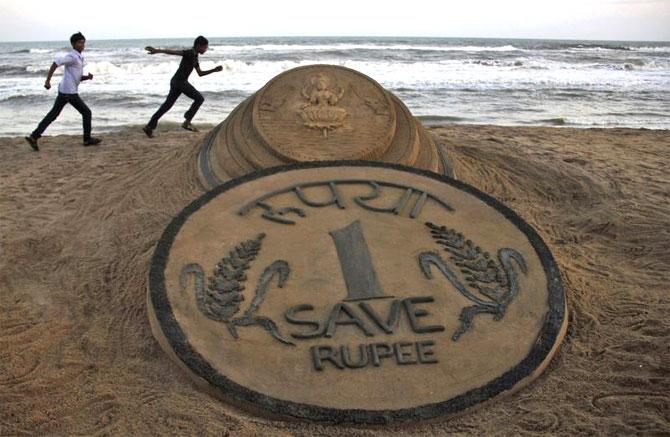A somewhat softer inflation trajectory, along with a largely stable currency outlook, should offer greater room for a more balanced monetary policy stance.
 The Reserve Bank of India (RBI) is widely expected to stay on hold in June. Inflation, after spiking in late-2013, has turned relatively range-bound in recent months.
The Reserve Bank of India (RBI) is widely expected to stay on hold in June. Inflation, after spiking in late-2013, has turned relatively range-bound in recent months.
While volatile inflation prints and nagging household inflationary expectations cannot be overlooked, one feels that underlying price pressures are by and large manageable at the moment, reflecting a markedly weak growth momentum, a stable currency and somewhat limited pass-through risks from global commodity prices.
Unless we face any major weather aberration in the coming months, I would expect retail inflation to average in the low-7 per cent handle in 2014-15, lower than the RBI glide path milestone of 8 per cent for early-2015.
Importantly, notwithstanding the much-discussed El Nino risks, the Indian Meteorological Department expects monsoon rains to be 95 per cent of normal in 2014, which, if materialised, would likely limit the damage for agriculture and food prices.
A somewhat softer inflation trajectory, along with a largely stable currency outlook and likely only a gradual uptick in growth momentum, should offer greater room for a more balanced monetary policy stance.
Getting past the political uncertainty related to the elections should be a relief, while the Budget of the new government will likely be an important factor for the course of monetary policy in the coming months.
One feels a credible medium-term fiscal consolidation plan, along with the government's indications to invest in easing longer-term supply bottlenecks, would be the most desirable outcome in the July Budget for the Mint Street.
While the RBI, in the recent past, appeared keen to move to an inflation-targeting framework, industry and academia remain divided on this issue.
Given the potential longer-term effect of such a change on the economy, we think the new government's economic policies would have to be in sync with the RBI's bias before such a major overhaul of the monetary policy framework could be implemented.
Overall, while policy interest rates are set to stay unchanged in the near term, with persisting negative output gap and lingering concerns in the financial sector's asset quality, the case for a somewhat more accommodative monetary policy stance in the latter part of 2014 cannot be ignored.











